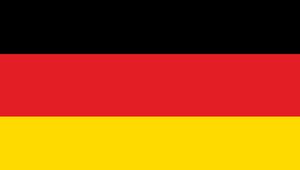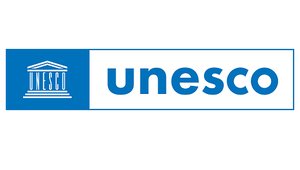Initiation to the Dongba script
- Duration: 9 weeks
- Effort: 46 hours
- Pace: ~5 hours/week
- Languages: English, french, german and simplified chinese
What you will learn
At the end of this course, you will be able to:
- identify the main characteristics of the Dongba script and Naxi culture,
- describe the basic construction principles of the Dongba writing system,
- recognise and decipher the meaning of 300 Dongba characters,
- write the main Dongba characters encountered throughout this MOOC,
- briefly analyse some cultural phenomena related to the Dongba script,
- develop an awareness of the need for the preservation and transmission of the Dongba script, and more generally, of endangered or threatened languages.
Description
To date, there are no other MOOCs on Dongba writing, nor similar online courses related to the culture of the Naxi ethnic group in China.
The Institut national des langues et civilisations orientales (Inalco, France), the University of Geneva, and the Beijing Language and Culture University (BLCU, China), have committed themselves, through an inter-university agreement, to this highly original project, namely the design, development and dissemination of a MOOC on the initiation to Dongba script. The idea behind this project is both to offer an introduction to what is presented as "the last pictographic script in use in the world", threatened with extinction, and to contribute to its preservation.
This MOOC offers an introduction to the Dongba script and to the Naxi culture. It allows you to understand the issues related to the transmission of this contemporary pictographic script and to the culture of the Naxi people, whose characteristics continue to make an impression.
Format
This MOOC is spread over a total of 9 weeks (including an additional week to conclude your learning) and comprises 7 modules that you can follow at your own pace.
During each module, you will be introduced to the Dongba script through content and pedagogical activities, while becoming aware of the cultural traits of the Naxi ethnic group.
Each module introduces you to the Dongba characters studied through three specific themes presented in short pedagogical videos. After each video, interactive training exercises (not graded) are offered to allow you to check your understanding, to explore complementary Dongba characters and to practice writing the main Dongba characters encountered.
Summary exercises, a cultural section and a discussion forum will allow you to consolidate your learning, to discover complementary aspects linked to Dongba writing and to co-construct your knowledge with other MOOC participants.
The weekly graded quizzes at the end of each module will allow you to validate your success and to later obtain the badge of successful completion of the course.
Prerequisites
There are no prerequisites for this course. A knowledge of Chinese characters would be welcome.
This course is intended for anyone (students, researchers, general public...) wishing to :
- discover the Dongba ictographic writing and the Naxi culture.
- take part in the preservation of a world cultural heritage and in intercultural dialogue.
Assessment and certification
This course offers you the possibility to obtain a free badge of successful completion if you pass the different weekly quizzes at the end of each module (from module 2 to module 7).
If your overall score is greater than or equal to 50% (correct answers), you will obtain the badge of successful completion of the MOOC.
Please note that this MOOC does not allow you to obtain an authenticated certificate.
Course plan
- During this module at the beginning of the MOOC, you will discover a set of resources and activities allowing you to understand the objectives and the functioning of the course, to become familiar with the training platform and also to get acquainted with the pedagogical team and other participants.
- This first module offers an introduction to the Dongba script and culture. It allows you to understand the issues related to the transmission of the only pictographic writing still in use in the world and to the culture of the Naxi people, whose characteristic features continue to make an impression.
- This second module introduces you to the following three themes through short educational videos:
- Family,
- Personal pronouns,
- Parts of the body.
After each video, practice exercises are offered to check your understanding, to explore complementary Dongba characters and to introduce you to the writing of the main Dongba characters encountered.
The summary exercises, the cultural section and the discussion forum allow you to consolidate your learning, to discover complementary aspects linked to Dongba writing and to co-construct your knowledge with other participants of the MOOC.
The weekly quiz at the end of the module allows you to successfully validate module 2 and to obtain the badge of achievement later on.
- This third module introduces you to the following three themes through short educational videos:
- Basic movements,
- State of being,
- State of being (continued) and movements.
After each video, training exercises are offered to check your understanding, to explore complementary Dongba characters and to introduce you to the writing of the main Dongba characters encountered.
The summary exercises, the cultural section and the discussion forum allow you to consolidate your learning, to discover complementary aspects related to Dongba writing and to co-construct your knowledge with other participants of the MOOC.
The weekly quiz at the end of the module allows you to successfully validate module 3 and to obtain the badge of achievement later on.
- This fourth module introduces you to the following three themes through short educational videos:
- Sun, moon and stars,
- Time of day,
- Numbers and months.
After each video, practice exercises are offered to check your understanding, to explore additional Dongba characters and to introduce you to the writing of the main Dongba characters encountered.
The summary exercises, the cultural section and the discussion forum allow you to consolidate your learning, to discover complementary aspects related to Dongba writing and to co-construct your knowledge with other participants of the MOOC.
The weekly quiz at the end of the module allows you to successfully validate module 4 and to obtain the badge of achievement later on.
- This fifth module introduces you to the following three themes through short educational videos:
- Mountains and meadows,
- Water and fire,
- Earth.
After each video, practice exercises are offered to check your understanding, to explore complementary Dongba characters and to introduce you to the writing of the main Dongba characters encountered.
The summary exercises, the cultural section and the discussion forum allow you to consolidate your learning, to discover complementary aspects linked to Dongba writing and to co-construct your knowledge with other participants of the MOOC.
The weekly quiz at the end of the module allows you to successfully validate module 5 and to obtain the badge of achievement later on.
- This sixth module introduces you to the following three themes through short educational videos:
- Trees and plants,
- Crops,
- Animals.
After each video, practice exercises are offered to check your understanding, to explore additional Dongba characters and to introduce you to the writing of the main Dongba characters encountered.
The summary exercises, the cultural section and the discussion forum allow you to consolidate your learning, to discover complementary aspects linked to Dongba writing and to co-construct your knowledge with other participants of the MOOC.
The weekly quiz at the end of the module allows you to successfully validate module 6 and to obtain the badge of achievement later on.
- This seventh module introduces you to the following three themes through short educational videos:
- Residence,
- Food,
- Clothing and daily appliances.
After each video, practice exercises are offered to check your understanding, to explore additional Dongba characters and to introduce you to the writing of the main Dongba characters encountered.
The summary exercises, the cultural section and the discussion forum allow you to consolidate your learning, to discover complementary aspects linked to Dongba writing and to co-construct your knowledge with other participants of the MOOC.
The weekly quiz at the end of the module allows you to successfully validate module 7 and to obtain the badge of achievement later on.
Course team
Joël BELLASSEN
Categories
WANG-SZILAS Jue
Categories
LI Yuming
Categories
YANG Yihua
Categories
ZHOU Yin
Categories
Partners
Collaborators with Inalco (France) in the development of the MOOC:
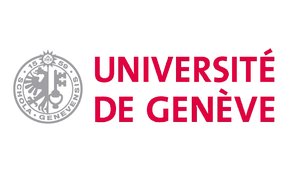
The University of Geneva (Switzerland)
With the University of Geneva's School of French Language and Civilisation (ELCF) and the University of Geneva's House of Languages (MdL)
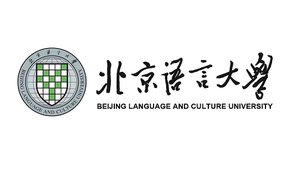
Beijing Language and Culture University - BLCU - (China)
With the Beijing Advanced Innovation Center for Language Resources (ACLR)
Funders
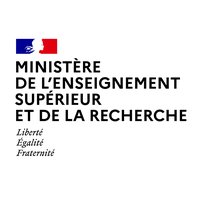
Ministry of Higher Education and Research (MESR)
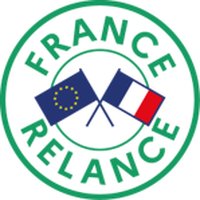
France Relance Plan
This MOOC was financed by the Ministry of Higher Education and Research (MESR) as part of the France Relance plan, with financial support from the European Union.

Acknowledgements
For the valuable contributions they brought to the realization of this MOOC:

CHEN Nan 陈楠
Professor at Tsinghua University, Beijing: author of the logo
清华大学美术学院教授,东巴文慕课logo设计者

HE Wenjun 和文军
Naxi singer, author of the music “Three Songs of Naxi”
纳西族歌手,《纳西三部曲》作者
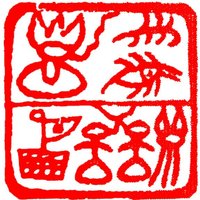
Lijiang Dongba Culture Research Institute
丽江市东巴文化研究院
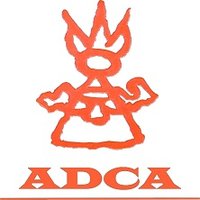
Beijing Association of Dongba Culture and Arts
北京东巴文化艺术发展促进会
More about Naxi events and Dongba writing
License
License for the course content

Attribution-NonCommercial-ShareAlike
You are free to:
- Share — copy and redistribute the material in any medium or format
- Adapt — remix, transform, and build upon the material
Under the following terms:
- Attribution — You must give appropriate credit, provide a link to the license, and indicate if changes were made. You may do so in any reasonable manner, but not in any way that suggests the licensor endorses you or your use.
- NonCommercial — You may not use the material for commercial purposes.
- ShareAlike — If you remix, transform, or build upon the material, you must distribute your contributions under the same license as the original.
License for the content created by course participants

All rights reserved
"All rights reserved" is a copyright formality indicating that the copyright holder reserves, or holds for its own use, all the rights provided by copyright law.








